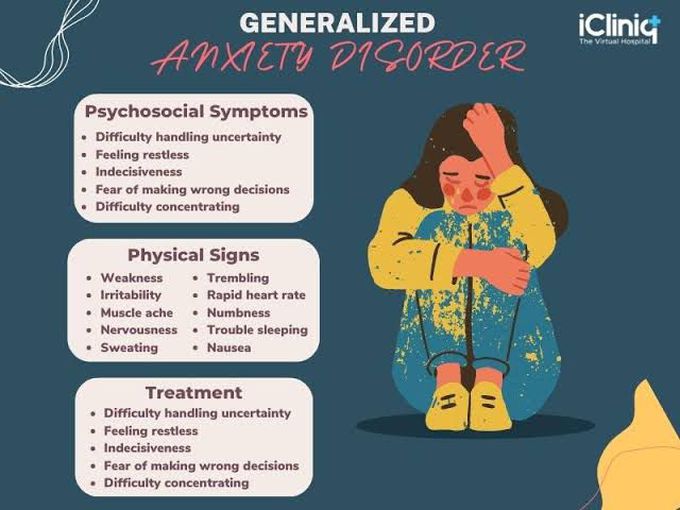


Sign and symptoms of Generalized anxiety disorder
Generalized anxiety disorder symptoms can vary. They may include: Persistent worrying or anxiety about a number of areas that are out of proportion to the impact of the events Overthinking plans and solutions to all possible worst-case outcomes Perceiving situations and events as threatening, even when they aren't Difficulty handling uncertainty Indecisiveness and fear of making the wrong decision Inability to set aside or let go of a worry Inability to relax, feeling restless, and feeling keyed up or on edge Difficulty concentrating, or the feeling that your mind "goes blank" Physical signs and symptoms may include: Fatigue Trouble sleeping Muscle tension or muscle aches Trembling, feeling twitchy Nervousness or being easily startled Sweating Nausea, diarrhea or irritable bowel syndrome Irritability
Wendigo syndrome

